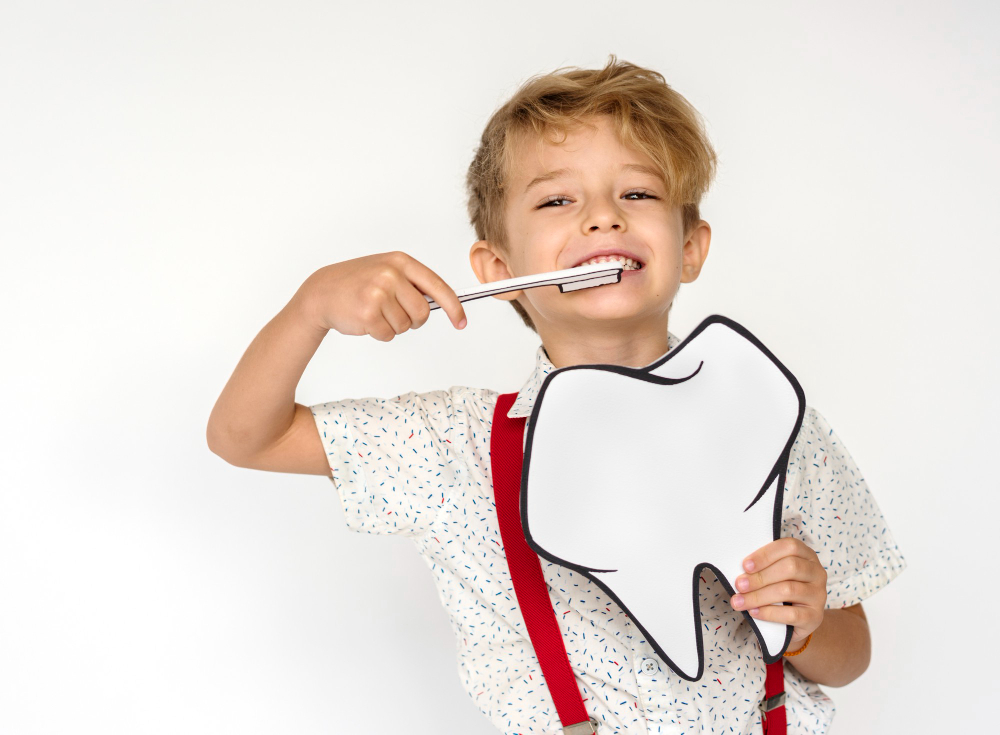
The appearance of a baby's first tooth is a joyful moment for parents, but it also marks the beginning of an important journey to maintaining oral health. Many parents feel anxious about properly caring for their children's teeth, especially when they encounter problems such as cavities, pain, or abnormal development. Dental health in childhood affects the smile and overall health well into adulthood, so it is important to start treatment correctly from the first tooth.
This guide is designed to help concerned parents learn how to keep their teeth healthy, what to do if there are problems, and the importance of visiting the dentist. In this article, we will present practical tips, essential information, and ways to support children's dental health.
First teeth, known as baby teeth, usually appear between 6 months and 1 year of age, although the timing varies among children. Signs include mild pain, increased drooling, and a tendency to bite objects. These teeth are important not only for chewing but also for the alignment of the permanent teeth that will come in later, so they should be taken care of from the start.
Dental treatments for children They start at a young age, usually with the appearance of the first tooth, and aim to prevent tooth decay, identify early problems, and teach good habits. A first visit to the dentist at the age of one allows for a diagnosis of dental development and guidance for parents.
Treatments include professional cleaning, using Teflon to protect the teeth, and treating cavities if they appear, which prevents pain and future crowns.
Parents can start with simple daily care. Brushing teeth twice a day with fluoride toothpaste, even if there are still few teeth, is an important step. Use a soft toothbrush or finger floss until age 2, and be sure to gently clean the gums. Limit sweets and sugary drinks, which cause tooth decay, and offer water as an alternative. These habits will build a healthy foundation for permanent teeth.
Parents should be aware of signs such as yellow teeth, pain when eating, or swollen gums, which can indicate cavities or inflammation. Broken or crooked teeth may indicate the need for future orthodontic treatment. If you notice any changes, see a pediatric dentist for an examination and appropriate treatment, such as a filling or early intervention, to prevent complications.
Regular visits to the dentist, usually twice a year, allow for monitoring of dental development and prevention of problems. A specialist can identify early problems such as tooth decay, damaged teeth, or the need for future orthodontic treatment. A first visit at the age of one creates a pleasant introduction to the clinic and prevents later concerns, while instilling correct care habits.
Diet directly affects dental health. Limit sticky sweets like caramels, which stick to teeth and increase cavities, and favor fresh fruits like apples, which naturally clean teeth. Encourage drinking water after meals to wash away food debris, and avoid sugary drinks that damage enamel. These habits support dental health over the long term.
If your child complains of toothache, swelling, or sensitivity, see a dentist right away. Prompt treatment can prevent infections or loss of a baby tooth, which can affect the permanent teeth. Use a weak saline solution for temporary relief, but don't delay professional treatment. Staying in touch with your dentist will ensure that problems are addressed quickly.
Every parent who wants to ensure a healthy smile for their children – whether they are new parents who are hesitant about primary care, families with young children who are concerned about cavities, or parents of children with crooked teeth – should make sure to start dental care from a young age. Professional advice and support will help you get started right. For more information on dental care, visit the website of Dr. Gisela Bernstein Eisenman - Dentist.